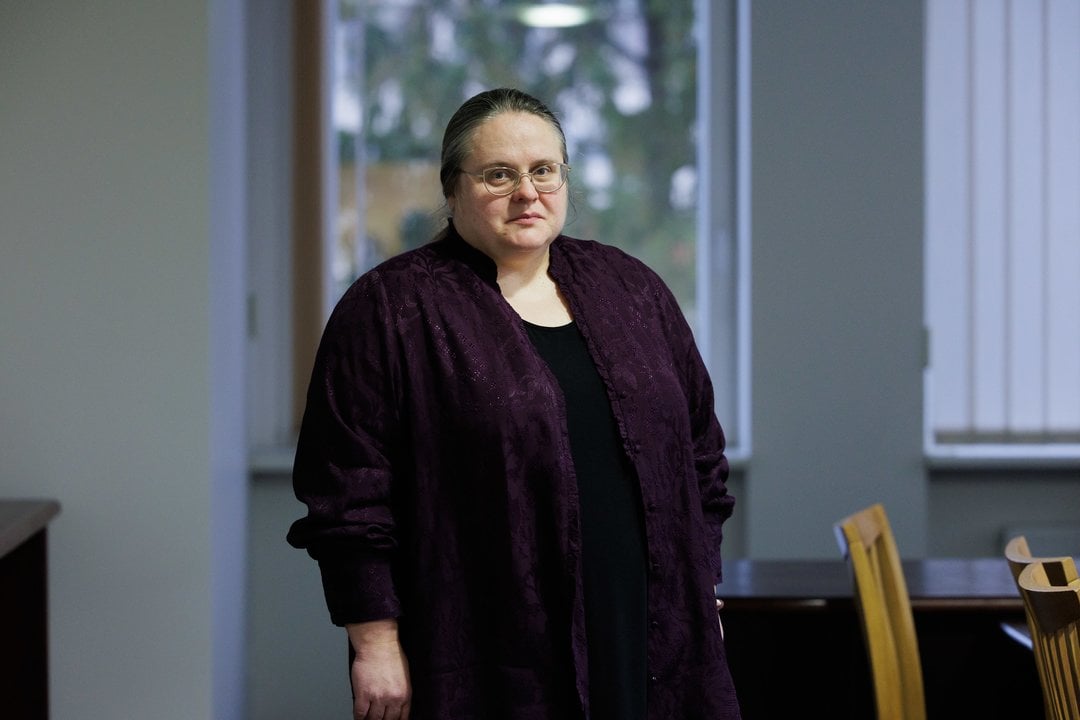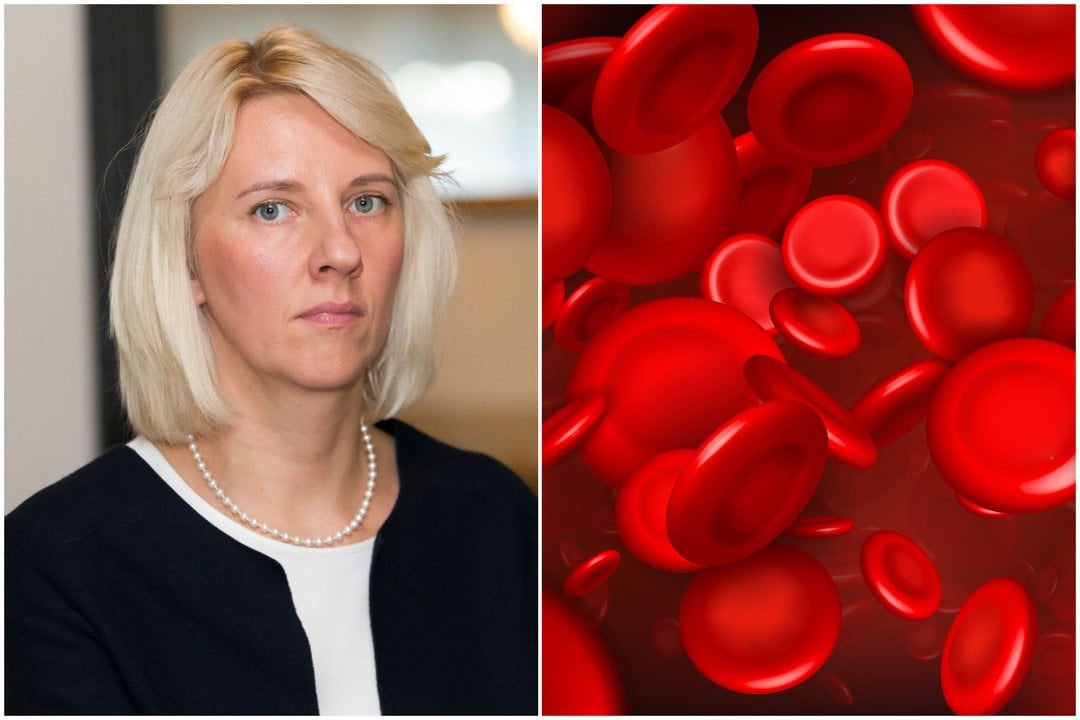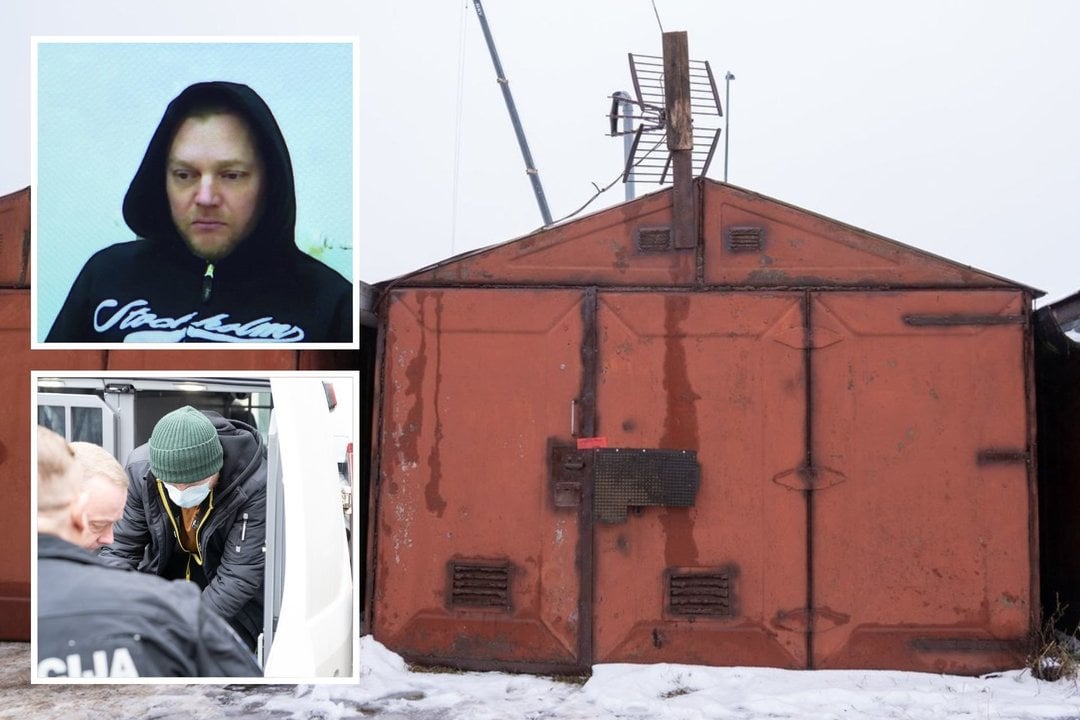Šarūnas Tarutis, Head of Investment and Analysis at creative real estate projects’ development and placemaking company Citus: ‘The number of transactions in Vilnius is recovering, and this year, it is experiencing stable growth. Despite this, the public is always looking for scares or trying to downplay this recovery. Recently, there has been an increase in the debate on the possibility of a direct conflict between NATO and Russia. On the one hand, such messages do not make buyers more determined, but I believe that we will avoid a major impact on the housing market. We need to understand that the incitement of threat and imminent danger is part of the hybrid war that we have been living in for decades – psychological operations, the impact of which must be countered by educating, explaining and reassuring, not by reinforcing the mood of danger.’
First of all, market activity is dictated by demand, which is to a large extent driven by demographic factors. Vilnius and Kaunas are growing cities, and newcomers need to find housing. The circumstances of existing residents are also changing, so there is a demand for housing, and it is not decreasing but increasing.
Economic factors are equally important: rising living standards and wages, and a strengthening economy. However, the impact of significant inflation and Euribor hikes is still being felt today, and according to the expert, this factor should be seen as the most important at the moment.
Consumer expectations are another factor that has a very significant impact. According to surveys published by the Lithuanian Data Agency, expectations are excellent this year. Both the consumer confidence indicator and the assessments and forecasts for the family’s financial situation and the changes in the state are basically at the level of the summer of 2021.
Vilnius primary market results for Q1 2024
The capital’s primary housing market is showing signs of recovery this year, with March being 22% more productive than February and 14% better than March last year (270). A total of 816 transactions were concluded in the first quarter of 2024, 26% more than in the same period the previous year and 16% more than in the last quarter of last year. Only in the first quarter of 2022 was the number of transactions higher – 1,012. Since then, the previous three months have been the most prolific.
The supply in Vilnius also continues to grow steadily: at the end of February, it amounted to 4,789 units of new apartments and terraced houses, and at the end of March, it was 4,830. During the month, the stock was replenished by 247 new dwellings in three new projects and one stage of a previously launched project. During the quarter, 1,031 new apartments and terraced houses were delivered to the market.
Since the beginning of the year, when the primary market stock consisted of 4,322 units in December, the stock has grown by almost 11.8%. The year-on-year growth is 8.22%: Vilnius residents chose from 4,463 dwellings in March last year. However, according to Citus analysts, about a fifth of Vilnius’s supply is illiquid – it hasn’t been available to buyers for two years or longer.
Prices have also changed marginally, continuing to hover around the 1% mark. Last month, the average price of apartments on offer was EUR 3,381/sq.m; in February, one sq.m cost EUR 3,394 (0.38% more). Although the appreciation since the beginning of the year amounts to 2.45%, prices have increased by 0.36% over 12 months.
The first quarter was also successful for Citus, with 68 transactions concluded in Vilnius, Kaunas and Druskininkai during the first three months. There were 33 deals in March, 8.3% less than in March a year ago. However, the quarter was 11.5% up on the same period last year and 62% better than the previous quarter.
Last month 23 apartments were sold in the capital city (49 in the quarter) and in Kaunas, in the first stage of the Radio City by CITUS project, which is nearing completion, two transactions were concluded (5 in the quarter), and in Druskininkai, the apartments of the Nemunas by CITUS project have found as many as eight prospective buyers (13 in the quarter).
The company’s portfolio comprises 188 dwellings: 118 apartments in Vilnius, the last three lofts in Kaunas and 67 apartments in Druskininkai. Last month, the company’s project Mūnai by CITUS in Žirmūnai was launched, and a little earlier, sales were completed in the Visorių project Visi Savi by CITUS. The project Būk Čia by CITUS in Lazdynėliai, which had been stuck in the grip of bureaucracy for two years, was also fully completed.
Primary market results for Kaunas Q1 2024
In Lithuania’s second-largest city, the primary housing market is waking up from hibernation a little more slowly. In March, 57 new apartments and terraced houses were sold here; in February, there were 69, and in January, 111. A total of 237 transactions were concluded in the temporary capital during the quarter. In the previous period there were 233, and 207 in the same period a year ago. Thus, although March was not a particularly rich month, the last quarter was better for Kaunas’s primary housing market than the previous quarter and the same quarter last year.
No new supply was recorded in Kaunas in March. As a result, the total range shrank from 873 units in February to 855 units in March. Since the beginning of the year, the supply has decreased by 10.5% (955 units at the end of December) and by 15.8% over the last year (990 units in March last year). The highest supply since the beginning of 2022 in Kaunas was in September last year. Then, residents could choose from 1,156 new apartments and terraced houses.
Housing prices in Kaunas have also remained stable with little change – they are more influenced by changes in new supply than by changes in the prices of the existing supply. The last recorded average price of supply apartments in this city was EUR 2,650/sq.m. The price of apartments in Kaunas increased by 2.08% per month, by 1.88% since the beginning of the year and by only 0.15% over 12 months.
Primary market results for Klaipėda in Q1 2024
Citus analysts calculate that last month was a modest one in the port city: only 7 transactions were concluded here, 1 transaction more than in January but 36% less than in February (11) and 83% less than in March last year (40). According to Citus experts’ previous assessment, Klaipėda showed solid steps towards recovery in the middle of last year, with a rapid increase in supply, but this has not yet translated into sustained growth.
Important to note that Klaipėda did not have a single new project during the month either, so the total stock decreased from 527 to 514. At the end of last year, the choice was 544 dwellings, but during the year, it has increased from 305 units, which is almost 69%.
Prices changes in Klaipėda were not a surprise either: in March, they were EUR 2,232/sq.m for new apartments on offer (in February, they were EUR 2,234/sq.m) and have increased by 0.59% since the beginning of the year, and by 6.24% since March last year.
Citus Affordability Index: result distorted by the statistical salary hike in December
Although high inflation is in the past and the European Central Bank’s moves towards lowering the Euribor were cautiously anticipated in the first quarter of the year, the 6-month interbank offered rate has been very similar for four months. This is one of the more extended periods of stable Euribor, which follows a sharp jump to a high of 4.143% in September last year and it remained above the 4% mark until the beginning of December.
During this time, Euribor has been hovering around the 3.9% mark, recently falling to around 3.85%. Thus, this indicator has had little impact on housing affordability. As mentioned earlier, house prices have also remained at very similar levels, so the most important recent influence on housing affordability has been wage developments.
The latest data from the public authorities are about two months behind, but according to the preliminary estimates of Citus analysts, they have remained at a very similar level to the last quarter of last year.
Šarūnas Tarutis, Head of Investment and Analysis at Citus: ‘The change in housing affordability, albeit minimal, has been observed in all three cities. The wage jump in Vilnius has been the most pronounced each December, which is why – statistically – wages even fell in the first quarter. However, this is only a statistical dip, which will eventually level out. Looking at the price change since the end of last year, affordability in the capital has unfortunately decreased slightly. In Kaunas and Klaipėda, it was slightly better than in the last quarter of 2023, and I expect the situation in Vilnius to turn for the better in the near future as well.’
The Citus affordability index shows how many square metres of housing a single person (CITHAI-I) or a two-person household (CITHAI-II) can buy on the primary market if a 30-year mortgage loan is taken out for 85% of the house’s value. The monthly payment is 40% of the buyers’ monthly income (amount after taxes). The banks’ interest margin is treated as a constant at 2%, as it is relatively stable, plus the 6-month Euribor rate, usually fixed when financing a home purchase.
The CITHAI-I and CITHAI-II indices and their changes are recorded every quarter.
At the end of March, the CITHAI-I index in Vilnius was 29.61 (sq.m), which is 1.68% lower than in the previous quarter, 4.40% lower than in the same quarter a year ago and 34.46% lower than in the baseline Q1 2017.
In Kaunas and Klaipėda, the CITHAI-I index improved slightly: in the temporary capital it reached 33.06 sq.m in March (0.05% better than 2023 Q4; 1.34% lower than 2023 Q1; 29.89% lower than 2017 Q1), and in the port city it reached 36.30 sq.m (3.20% better than 2023 Q4; 6.10% worse than 2023 Q1; 48.32% worse than 2017 Q1).
In March, the CITHAI-II index – or the affordable housing area in square metres of two people buying a home together with a loan – was 56.26 (sq.m) in Vilnius, 62.82 (sq.m) in Kaunas and 68.97 (sq.m) in Klaipėda. The change compared to previous periods was very similar to the CITHAI-I index.




